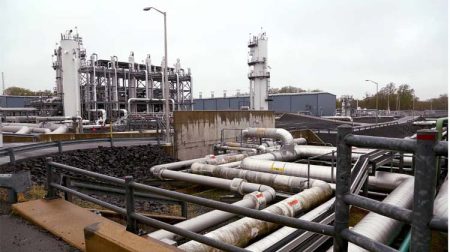The Nigerian government, under the leadership of Housing and Urban Development Minister Ahmed Dangiwa, is embarking on a strategic initiative to revolutionize the housing sector by establishing building materials manufacturing hubs across the country’s six geopolitical zones. This ambitious project aims to tackle the persistent challenge of high housing costs by significantly reducing the price of building materials, thereby making homeownership more accessible to the average Nigerian citizen. This aligns with the government’s overarching commitment to ensuring affordable housing for all.
The core objective of these manufacturing hubs is to create centralized locations where manufacturers can benefit from shared infrastructure, reduced production costs, and economies of scale. By clustering manufacturers in designated hubs, the government envisions a synergistic environment that fosters collaboration, innovation, and efficiency within the building materials industry. These hubs will also serve as centers for technological advancement, providing access to modern technology, training programs, and research and development facilities, ultimately enabling manufacturers to produce high-quality materials that meet international standards. Furthermore, the strategic location of these hubs will ensure easy access to both raw materials and distribution networks, further minimizing transportation costs and enhancing the competitiveness of locally produced building materials.
In considering the optimal locations for these hubs, existing free trade zones have emerged as a compelling option. Free trade zones offer inherent advantages, such as tax incentives, reduced regulatory burdens, and streamlined access to markets. Leveraging these pre-existing zones would expedite the establishment of the manufacturing hubs, minimize initial setup costs, and attract both domestic and foreign investment, further bolstering the initiative’s potential for success. Utilizing existing free trade zones would represent a strategic and efficient use of existing resources.
Beyond establishing new manufacturing hubs, the government is also exploring strategies to empower existing producers of key building materials, particularly cement manufacturers, to expand their operations at their current locations. This approach involves providing targeted support, such as access to affordable financing, tax incentives, and infrastructure improvements. By assisting these established producers in scaling up their production capacity, the government aims to meet the escalating demand for building materials without necessarily requiring the construction of entirely new hubs. This strategy not only reduces the financial burden and time associated with developing new facilities but also optimizes the utilization of existing resources and infrastructure.
The government recognizes the multitude of challenges faced by local building materials manufacturers, including high production costs stemming from inadequate infrastructure, limited access to affordable financing, fierce competition from imported materials, and inconsistent government policies and regulations. These hurdles have significantly impeded the growth of the sector and hampered its potential contribution to the national economy. To address these challenges proactively, the government is committed to creating a more conducive environment for local manufacturers through the implementation of fiscal incentives.
These fiscal incentives encompass a range of measures, including tax holidays or reduced tax rates for local manufacturers, waivers on customs duties for imported machinery and raw materials, grants and subsidies to facilitate production scale-ups, access to affordable financing through low-interest loans, and fostering public-private partnerships to drive innovation and growth within the sector. These incentives are not merely policy options but are considered essential for the expansion of the national economy and the realization of the government’s housing goals. By stimulating local production, reducing reliance on imports, and improving affordability, the government strives to achieve its overarching objective of providing decent and affordable housing for all Nigerians.














